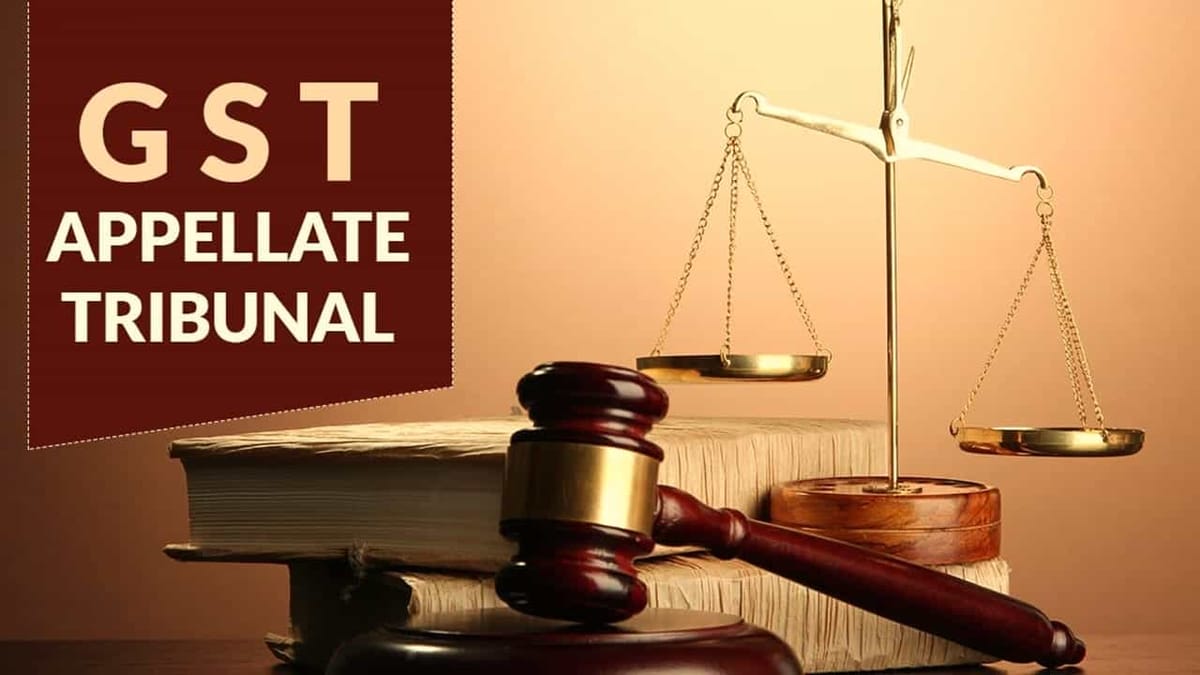CA Pratibha Goyal | Dec 10, 2022 |

Petitioner entitled to Appeal with High Court due to Non-Constitution of GST Appellate Tribunal: HC
The petitioner is a non-banking finance company and is an assessee under the GST Regime. This writ petition has been filed challenging order in appeal to the extent it found that the petitioner is liable to pay tax on notice pay received from the former employees of the petitioner.
The appellate authority upheld the orders of the original authority, which had rejected the claim for refund made by the petitioner for a refund of GST paid on notice pay received from the erstwhile employees. It is the case of the petitioner that since the GST Appellate Tribunal has not been constituted, the petitioner has no other remedy other than to approach this Court under Article 226 of the Constitution of India.
It is submitted by Petitioner that with the issuance of the Circular bearing No.178/10/2022-GST dated 3.8.2022, it is now clear that the petitioner is clearly not required to pay any GST on notice pay received from employees. It is submitted that though the Circular (Ext.P8) was issued only on 3.8.2022, the said Circular should be treated as applying to all past transactions as well, as it is settled law that the beneficial Circular must be applied retrospectively. Reference is made in this regard relying on the judgment of the Supreme Court in Suchitra Components Ltd. v. Commissioner of Central Excise; (2006) 12 SCC 452. The learned senior counsel also referred to the judgments in Navnit Lal C. Javeri v. K.K. Sen ; 1965 (56) ITR 198, K.P. Varghese v. Income Tax Officer, Ernakulam and another; (1981) 4 SCC 173, Madhu Silica Pvt. Ltd v. Commissioner of Income Tax and another; (1997) 227 ITR 350 to contend that Circulars in the nature of Ext.P8 are binding on the GST Department. It is also submitted that the Madras High Court in GE T & D India Ltd v. Deputy Commissioner of Central Excise; 2020 (35) G.S.T.L. 89 (Mad.) has considered the very same issue and has come to the conclusion that notice pay received from employees does not amount to a rendition of service for the purposes of the Finance Act, 1994.
Sri. P.R. Sreejith, the learned counsel appearing for the respondent Department, would, on the other hand, contend that the writ petition is not maintainable before this Court merely because the GST Appellate Tribunal has not been constituted.
It is submitted that the Central Goods and Service Tax (Ninth Removal of Difficulties) Order, 2019, clarifies that the starting point of limitation for the purposes of filing any appeal against any order before the GST Appellate Tribunal shall count only from the date of the constitution of the tribunal.
It is contended that order, which is impugned in the present writ petition, is an order upholding the decision of the original authority to reject the claim for refund and therefore, the petitioner can very well wait for the constitution of the appellate tribunal for adjudication of its grievances, as there is no demand against the petitioner. It is submitted that the question as to whether the provisions of Circular will apply retrospectively is a matter to be considered and decided by the Tribunal, having regard to the facts of the case and terms of the Circular, and it is not open to the petitioner to now contend before this Court, in a writ petition under Article 226 of the Constitution of India, that the benefits of the Circular should be extended to the petitioner. It is pointed out that the Circular was issued only about 2 ½ months after the issuance of order, and therefore, the issuance of a Circular does not advance the case of the petitioner in any manner.
Having heard the learned senior counsel appearing for the petitioner and the learned standing counsel appearing for the respondent Department, High Court was of the view that the petitioner is entitled to succeed.
The terms of the Circular specifically deal with the question arising for consideration in this case. The Circular clarifies that the amount of money received by the petitioner as notice pay from erstwhile employees is not a taxable transaction for the purposes of the GST laws. As rightly contended by the learned senior counsel, the decisions of the Supreme Court in Navnit Lal (supra) which was applied and followed in K.P. Varghese (supra) are binding precedents for the proposition that Circulars are binding on the Department and no officer can take a view contrary to stipulations contained in such Circulars.
Since the Circular only clarifies the existing law the Circular has a retrospective effect.
The contention raised by the learned counsel for the respondent Department that the petitioner has an effective alternative remedy before the GST Appellate Tribunal does not appeal to High Court for the simple reason that the GST Appellate Tribunal is yet to be constituted. The fact that the period of limitation will start to run only from the date of the constitution of the Appellate Tribunal is no solace to the petitioner. The petitioner is, therefore, entitled to exercise the jurisdiction of this Court under Article 226 of the Constitution of India to challenge the orders impugned in this writ petition.
For Official Judgment Download PDF Given Below:
In case of any Doubt regarding Membership you can mail us at contact@studycafe.in
Join Studycafe's WhatsApp Group or Telegram Channel for Latest Updates on Government Job, Sarkari Naukri, Private Jobs, Income Tax, GST, Companies Act, Judgements and CA, CS, ICWA, and MUCH MORE!"